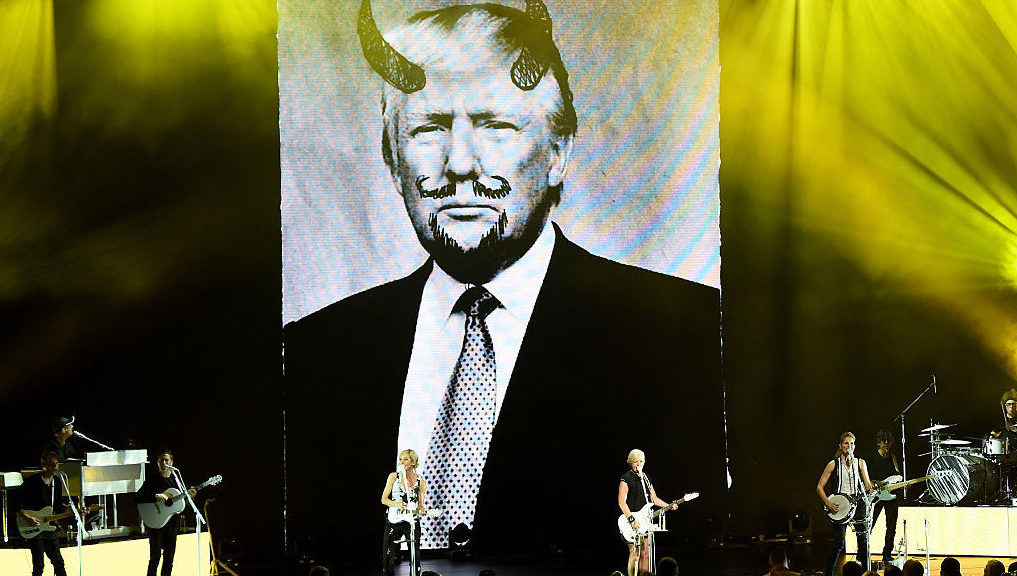Last week Texan country trio The Dixie Chicks gave in to pressure from Black Lives Matter campaigners to change their name. Since ‘Dixie’ was a moniker for the southern states involved in the civil war, the band will now be known as The Chicks.
This was no arbitrary gesture. The band have learned what they need to do to survive in 2020. They can’t simply put out music; they must also embody right-on political views.
It’s no surprise then that today’s musicians are queueing up to have their say on popular political issues: The Rolling Stones are taking legal action against Donald Trump after he used their music at a rally; hit Country Band Lady Antebellum have been renamed Lady A because ‘Antebellum’ has loose connections with the slave trade; Taylor Swift transformed herself into an LGBTQ activist with her song ‘You Need to Calm Down’ and Madonna has been singing about gun crime.
Across Western culture, artists have rebranded themselves as activists. A quick glance at last year’s roster of London exhibitions shows the growing role of politics in our museums: visitors to the Olafur Elliason show at the Tate Modern were invited to bring old T Shirts with them to recycle as a nod to the artist’s support for sustainability while The Natural History Museum celebrated Pride Month with a focus on queerness in the animal kingdom.
As urgent and worthy as these issues might feel, I can’t be the only one to find it all a bit…didactic. It brings to mind the stringent social mores of the 1800s when the value of culture was seen thought to be in its moral message not its aesthetic qualities. In 1807, for instance, Charles and Mary Lamb rewrote the works of Shakespeare for Victorian children. They made no secret of editing the plays to suit the tastes of their audience: scenes of clowning and drunkenness were cut, as were sexual innuendos. Instances of magic were also rationalised away.
We might scoff at such censorship, but we’ve rebranded the Bard with equal amounts of gusto in our own era. Take the 2014 feminist staging of Hamlet starring Maxine Peake. Or the ‘environmentally sustainable’ production of Much Ado About Nothing which popped up recently at my local suburban theatre. These plays are simply doing for our own generation what the Lambs did for the Victorians.
It’s only a matter of time before artists tire of such predictable political box ticking. Victorian moralism gave way in the late 1800s to the aesthetic movement: a Kantian pursuit of beauty for its own sake. Today, we’re in dire need of a similar rebellion.
Today’s activist art scene would be more palatable if the work produced felt original. But art that enforces the values of its day without interrogation or insight quickly loses its purpose. If politics has found a home in pop music then it’s a sure sign that the issues being championed are no longer radical but mainstream.
There’s nothing more radical these days than the simple pursuit of beauty. If you don’t believe me, think how incongruous a painting of a rose would look on the wall of the Tate. Sooner or later somebody will do it and we’ll all sit up and notice.










Join the discussion
Join like minded readers that support our journalism by becoming a paid subscriber
To join the discussion in the comments, become a paid subscriber.
Join like minded readers that support our journalism, read unlimited articles and enjoy other subscriber-only benefits.
Subscribe